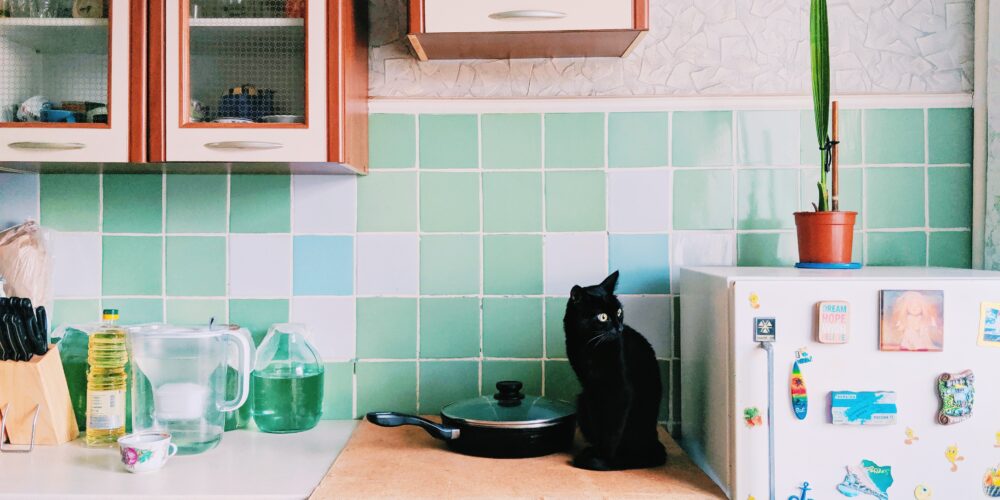
Smart Kitchen Technology: Transforming Culinary Spaces for the Future
The kitchen has always been the heart of the home, and with the rapid advancement of technology, it is now becoming the brain as well. Smart kitchen technology is revolutionizing the way we cook, eat, and interact in this essential space. From innovative appliances to connected devices, the smart kitchen is all about convenience, efficiency, and creating a seamless cooking experience. In this blog post, we’ll explore some of the latest smart kitchen technologies that are transforming culinary spaces for the future.
1. Smart Appliances
The backbone of any smart kitchen is its smart appliances. These intelligent devices are designed to make your cooking tasks easier and more efficient. From smart refrigerators that can create shopping lists and track expiration dates to smart ovens that can be controlled remotely and provide cooking suggestions, these appliances are changing the way we interact with our kitchen. They can be synced with your smartphone or connected to a smart home system, allowing you to monitor and control them from anywhere, giving you more flexibility and control over your cooking.
2. Voice-Activated Assistants
Voice-activated assistants, like Amazon Alexa and Google Assistant, have found their way into the kitchen, becoming virtual sous-chefs for many home cooks. With just a simple voice command, you can ask these assistants to set timers, convert measurements, find recipes, and even control other smart devices in your kitchen. This hands-free approach to kitchen tasks is not only convenient but also helps prevent messes and cross-contamination while cooking.
3. Smart Lighting
Smart lighting systems allow you to set the perfect ambiance in your kitchen with just a few taps on your smartphone or a voice command. You can adjust the brightness and color of your kitchen lights to match your mood or specific cooking needs. Some smart lighting systems even have built-in features like dimming during mealtime or brightening when you need to focus on food preparation. Smart lighting not only adds functionality but also enhances the overall aesthetic of your kitchen.
4. Connected Cookware
Imagine having cookware that can communicate with your smart appliances and provide real-time cooking data. Smart cookware is equipped with sensors and technology that can measure temperature, weight, and cooking time, giving you precise control over your cooking. Some smart pans and pots can even send alerts to your smartphone when your food is ready, eliminating the risk of overcooking or burning your dishes.
5. Internet of Things (IoT) Integration
The Internet of Things (IoT) has opened up a world of possibilities in the smart kitchen. With IoT integration, your kitchen devices and appliances can communicate with each other, creating a seamless and coordinated cooking experience. For example, your smart oven can communicate with your smart fridge to adjust its temperature based on the ingredients you have stored, ensuring optimal freshness and energy efficiency.
6. Smart Scales and Measuring Devices
Precision is essential in cooking, and smart scales and measuring devices take accuracy to a whole new level. These devices can connect to your smartphone or tablet and provide precise measurements for ingredients, eliminating the need for multiple measuring cups and spoons. Some smart scales even have built-in recipe apps that guide you through the cooking process step-by-step.
7. Automated Coffee Machines
For coffee enthusiasts, smart coffee machines are a game-changer. These machines can be programmed to brew your favorite coffee just the way you like it, and some can even remember your preferences and create personalized coffee profiles for each family member. With a tap on your smartphone, you can have a freshly brewed cup of coffee waiting for you as soon as you step into the kitchen.
8. Smart Water Systems
Stay hydrated and eco-friendly with smart water systems that monitor your water usage and filter quality. These systems can alert you when it’s time to change the filter or when there’s a potential water leak, helping you conserve water and avoid unnecessary waste.
9. Recipe and Meal Planning Apps
Smart kitchen technology also extends to the digital world with recipe and meal planning apps. These apps can suggest recipes based on the ingredients you have in your fridge, create shopping lists, and even adjust serving sizes to reduce food waste. They can also analyze your eating habits and dietary preferences to provide personalized meal suggestions and nutritional information.
10. Energy Monitoring and Management
Smart kitchen technology doesn’t just focus on convenience; it also emphasizes energy efficiency. Smart energy monitoring and management systems can track your energy consumption and suggest ways to reduce your kitchen’s energy usage. They can also optimize the timing of your appliances to run during off-peak hours, saving you money and reducing your carbon footprint.
Conclusion: Embrace the Future of Smart Kitchens
In conclusion, smart kitchen technology is transforming culinary spaces into efficient, connected, and personalized hubs of creativity. With smart appliances, voice-activated assistants, connected cookware, and IoT integration, the future of the kitchen is both convenient and environmentally conscious. Embrace the possibilities of smart kitchen technology and elevate your cooking experience to a whole new level of efficiency and enjoyment.
